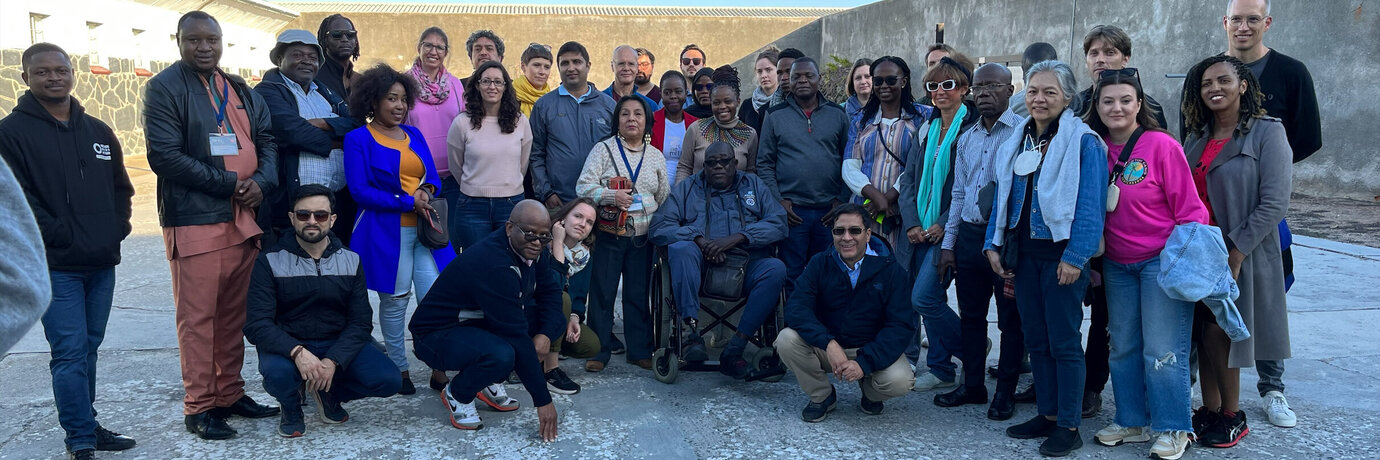Further information
Our guide, himself a prisoner for 10 years on Robben Island, was turning his thoughts from the past to the present.
“My country – and our world – has all the resources we need. We can feed everyone. Everyone can live well. So why are so many people still in poverty? Take this message from this place, that we won’t allow this, that our leaders must put this right.”
We had already seen the small cells for Mandela and the other highest security prisoners, and the rooms where prisoners had to sleep side by side on the mats on the floor. We had walked under the walls topped with barbed wire and stared up at the galleries where guards patrolled with loaded rifles.
But what had stirred us deeply was this man’s story. He had told us of the laws that had made him an alien in his own country. He had been trained to resist, then arrested and put on trial at only 19 years old. When he was arrested, he was nearly drowned, electrocuted and forced to eat his own faeces by men whose names he knows - men who are now living comfortable lives with their families.
He was sent to Robben Island where the guards played cruel psychological games which almost broke him. They censored or destroyed his mail. One day he was called to the office to be told that, instead of being there to visit him that day, his father had been shot by the same men who tortured him.
But he wasn’t broken. Led by Nelson Mandela, the prisoners won small but significant victories against the terrible conditions and inadequate clothing, driven on by the rightness of their cause and protected by their mutual support and solidarity.
He left Robben Island with a fierce desire to bear witness to his experience. Despite being a recent amputee and very sick, and despite the visits to the prison forcing him to relive these terrible times, he is drawn back year after year to educate future generations.
By asking us to transmit his call to share the world’s resources more fairly; he showed us that, despite his age and infirmity, he is still an activist for justice. Our colleagues assured him that this message would be heard and acted on. They explained that there had just been a meeting in Cape Town of people from around the world who were dedicated to passing the same message to their own governments, through the framing of Agenda 2030 and the SDGs.
This is the reason why organisations are members of the Global Forum for SDG Advisory Bodies. They are dedicated to being critical friends of their governments, making sure as best they can that national policies and service delivery, as represented by the SDGs, are responsive to the whole of society and have social and economic justice at their heart.
This is also why we at TPI are delighted to have been asked to be part of a new team running the secretariat function for the Global Forum. As advocates of multistakeholder working, we are always keen to support those who convene partnerships that bring together government, civil society, business, academia and all other sectors of society. We also share a common purpose with members of the network who are answering the call from Robben Island. By using multi-stakeholder partnerships we are helping change the way that resources are used to achieve a fairer outcome for all.

